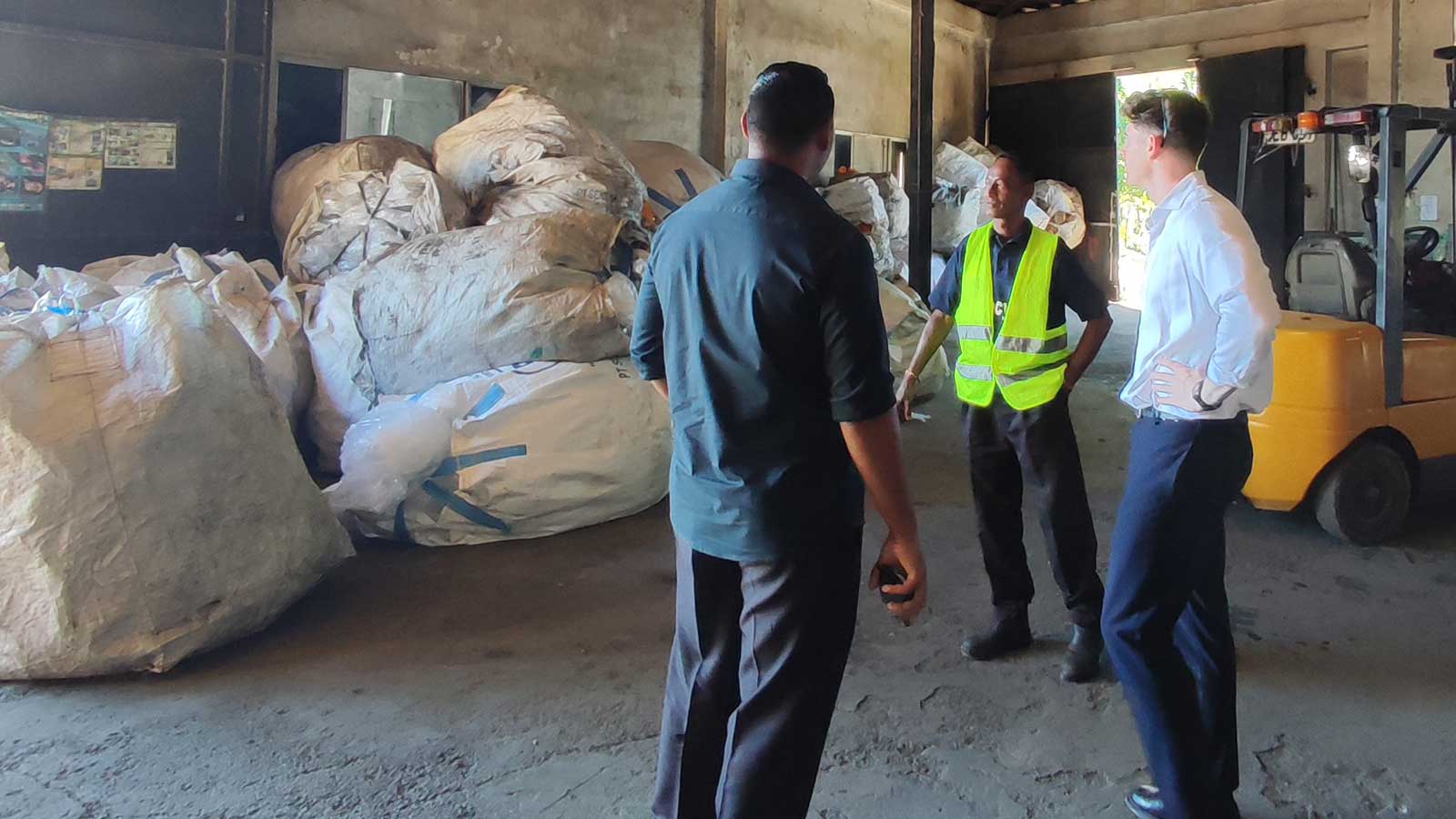Last month, PTI Australia’s Investment Manager, Samuel Sutton, travelled to Fiji to support early-stage stakeholder engagement and information gathering for a PTI Australia commissioned feasibility assessment of a Plastic Credit System (PCS) in Fiji.
Plastic credits are an innovative finance mechanism that allow companies to make downstream investments in new or expanded plastic waste collection and recycling infrastructure, particularly in geographies that are disproportionately impacted by plastic pollution. By creating an investable market mechanism, plastic credits can channel private sector capital into addressing waste management challenges that otherwise struggle to secure funding.
Much like carbon credits, plastic credits enable businesses to balance their plastic footprint by financing the removal, recycling, or prevention of an equivalent amount of plastic waste, supporting sustainability commitments, enhancing environmental credentials, and meeting voluntary or regulatory targets. They also provide a revenue stream for initiatives tackling plastic waste, helping scale collection, recycling, and prevention efforts while delivering measurable environmental benefits and supporting local jobs and communities.
Commissioned by PTI Australia and supported by Investment Fiji, the PCS feasibility assessment is being conducted by SecondMuse, a global impact and innovation firm, with its APAC operations headquartered in Singapore. The recent mission aimed to better understand local contexts, current initiatives and key stakeholders’ perspectives on Fiji’s plastic waste value chain, to inform the feasibility and ‘investability’ assessment of a market-based plastics mechanism being deployed.
Recognising that a PCS would complement existing and emerging initiatives, Samuel noted the project aims to build on Fiji’s current efforts to address plastic pollution by introducing an investable, market-based mechanism that delivers both environmental and economic benefits.
“A PCS could help close the gap by assigning value to verified plastic recovery and processing, attracting private investment, and generating income opportunities for local communities, particularly in the informal waste sector. This mission forms part of a broader assessment to determine whether such a system is feasible, desirable, and aligned with Fiji’s policies, infrastructure, and market priorities.”
Adding to this, Titus Loh, Manager of Circularity at SecondMuse, reflected on the importance of local insights.
“The insights gained from the mission has helped us develop a more nuanced understanding of Fiji’s existing plastic waste management landscape and how different stakeholder groups have been addressing the issue within their respective capacities and spheres of influence. We were encouraged by the keen interest shown in PTI’s endeavour, and we hope to identify opportunities to drive improvements in Fiji’s plastic waste collection and recycling ecosystem through a collaborative engagement process.”
The project seeks to complement the many initiatives already underway in Fiji by exploring whether a market-based mechanism could provide an additional pathway for investment into plastic recovery and recycling. By building on what is already happening across government, community, and private sector efforts, the feasibility study will help determine how a PCS could deliver long-term value for Fiji’s people, environment, and economy.
Those interested in learning more or contributing to the feasibility process are encouraged to connect with PTI Australia as the project continues to gather insights and explore pathways for private sector investment.



